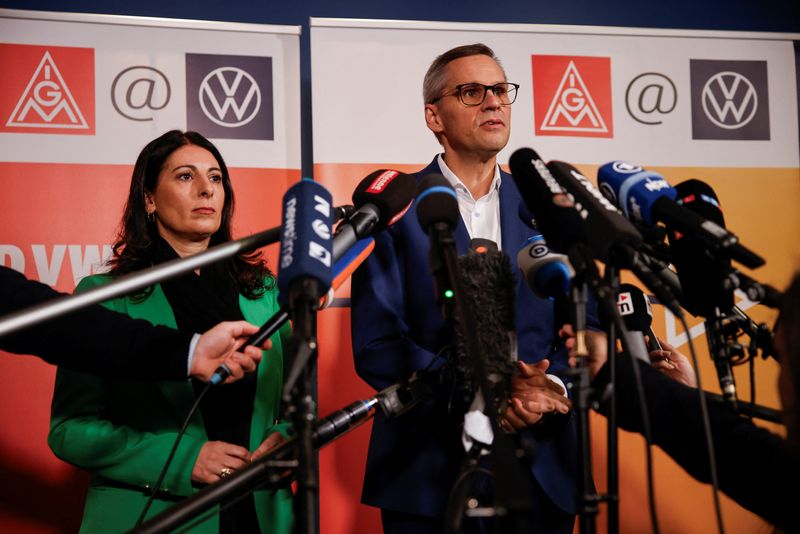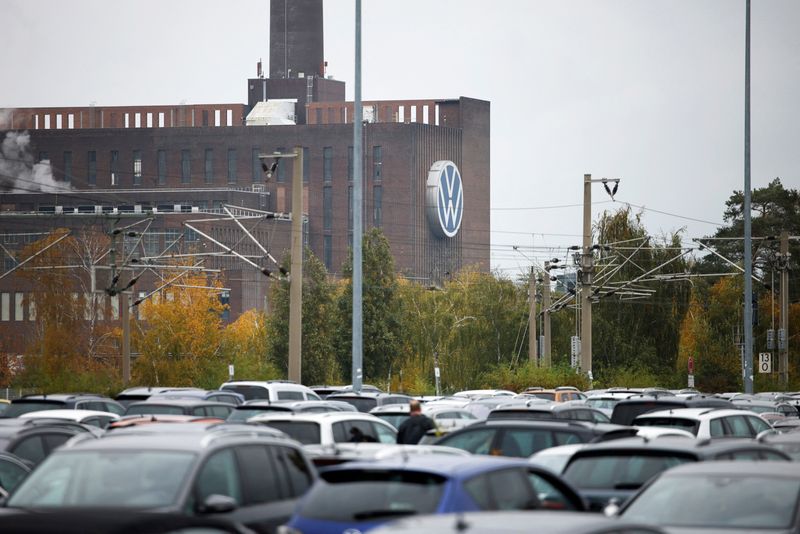WOLFSBURG, Germany (Reuters) -Unions on Wednesday raised the prospect of strikes at Volkswagen (ETR:VOWG_p) unless the automaker is prepared to rule out plant closures from its restructuring plan, as the two sides lock horns for a second time over pay and potential factory shut-downs.
Thorsten Groeger, chief negotiator of the powerful IG Metall union, said workers expected a future for all German sites in the restructuring, which could be the biggest in the company's recent history.
"Otherwise, I can say quite clearly that we will have to plan further escalation with our negotiating and collective bargaining committee," he told reporters.
The talks at Volkswagen's Wolfsburg headquarters come as it reported a plunge in third-quarter profit, highlighting the weak demand, high costs and growing competition weighing on Europe's biggest carmaker.
Management wants to close plants in Germany - at least three of them - for the first time in the company's history, while also cutting tens of thousands of jobs and reducing wages by at least 10%, according to labour leaders.
"The situation is coming to a head," said Arne Meiswinkel, personnel chief at the company's core VW brand.
The plans have sent shockwaves through Europe's biggest economy as it grapples with anaemic growth, above all in its industrial heartlands.
Works council head Daniela Cavallo earlier this week threatened to break off talks, saying Volkswagen management had ended a long-standing consensus-driven approach to its relationship with workers.
Unions cannot hold wider strikes until December as part of a previously agreed truce, but labour leaders have repeatedly threatened that workers would do what's in their power to prevent what they consider to be a breaking of taboos.

Wednesday's talks are scheduled to start at 1100 CET (1000 GMT), and Volkswagen earlier this week said it would table proposals for how to tackle the current malaise.
Management says the German plants are way more expensive to operate than the competition, driven by high costs for workers and energy, while Europe's car market has shrunk from pre-pandemic levels and once robust demand in China has waned.
